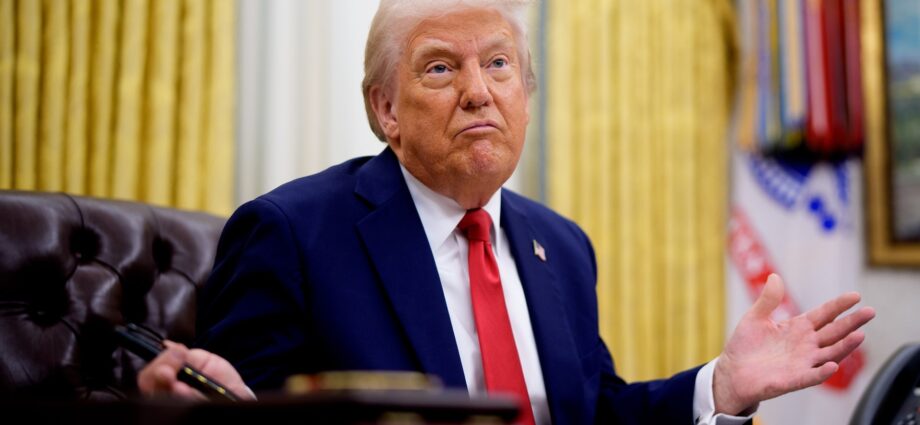During a trip to a rally in Warren, Michigan, President Trump announced a slight back-down on the tariffs that threaten the automotive industry, to allow what he called a “short-term” transition. However, with the latest executive offers, we’re still likely to see higher prices for cars, parts, repairs and insurance premiums.
The 25 percent tariff imported cars that went info effect on April 3 still exists, and the tariff on parts will still be levied starting May 3. However, there are some carve-outs. The wording of the latest executive order is a bit confusing, but it basically eliminates the “stacking” of tariffs, so that a vehicle and its components subject to multiple import taxes will now be subject only to the single highest tariff which would otherwise apply.
How can tariffs get stacked? When an American company assembles a car in another country, parts may cross the border several times. For example, aluminum could come to the U.S. to make parts that are then shipped to another country to assemble a powertrain, which is then re-imported into the U.S. for assembly in a vehicle. In this case, the automaker would only have to pay the 25 percent tariff on the assembled powertrain and not the imported aluminum used to make it. Such cross-border traffic is common; in the course of assembling a vehicle, parts may zig-zag across a U.S. border as many as eight times. Vehicles that have 85 percent of their parts content in compliance with the United States-Mexico-Canada Agreement (USMCA, the replacement for NAFTA) are already exempt from import tariffs.
The new proclamation also allows for a credit on imported parts used in domestically-assembled mechanisms. Starting on May 3rd, automakers can get a credit against tariffs paid for imported parts up to 3.75 percent of the car’s MSRP. This credit will drop to 2.5 percent after one year and will be eliminated the year afterwards, the goal being to give automakers time to return parts manufacturing to the U.S.
However, the new back-down will not entirely eliminate tariffs for domestic automakers, nor costs for American buyers. The Detroit News estimates that the credits could relieve only $900 of the $2,500 to $4,000 in tariffs for a Ford Explorer built in Chicago. The credits would offset $2,000 of the $10,000 in tariffs to which a Texas-built GM pickup truck is subject.
Furthermore, the tariffs will still affect the costs of replacement parts, which will drive up both repair prices and insurance rates for everyone, not only new car buyers. Without a change in tariff policies, American drivers can expect to feel the pain, whether they are buying a new car or keeping their old one, soon.

